- Florida College is a private, residential college that emphasiszes strong academics within a spiritual environment. Located in Temple Terrace, FL, the school was founded in 1946 and has been encouraging and educating class after class ever since that time.
School Highlights
Florida College serves 646 students (86% of students are full-time).
The college's student:teacher ratio of 5:1 is lower than the state community college average of 20:1.
Minority enrollment is 29% of the student body (majority Hispanic), which is less than the state average of 67%.
Quick Stats (2025)
- Enrollment: 646 students
- Private-state tuition: $15,330
- Acceptance Rate: 83%
- Student:teacher ratio: 5:1
- Minority enrollment: 29%
- Source: Integrated Postsecondary Education Data System (IPEDS)
Top Rankings
Florida College ranks among the top 20% of public schools in Florida for:
Category
Attribute
Selectivity
School Overview
The teacher population of 122 teachers has stayed relatively flat over five years.
Florida College
(FL) Community College Avg.
Carnegie Classification
Baccalaureate/Associate's Colleges: Mixed Baccalaureate/Associate's
Not applicable, not in Carnegie universe (not accredited or nondegree-granting)
Institution Level
Four or more years
At least 2 but less than 4 years
Institution Control
Private not-for-profit
Private not-for-profit
Total Faculty
122 staff
139 staff
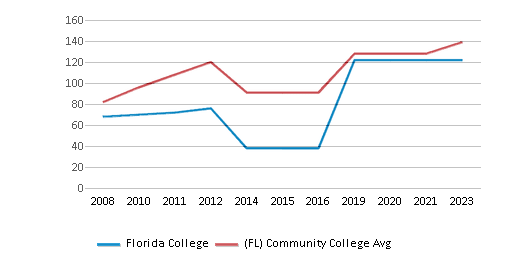
School Calendar
Student Body
The student population of Florida College has grown by 20% over five years.
The student:teacher ratio of 5:1 has increased from 4:1 over five years.
The Florida College diversity score of 0.49 is less than the state average of 0.76. The school's diversity has grown by 29% over five years.
Total Enrollment
646 students
646 students
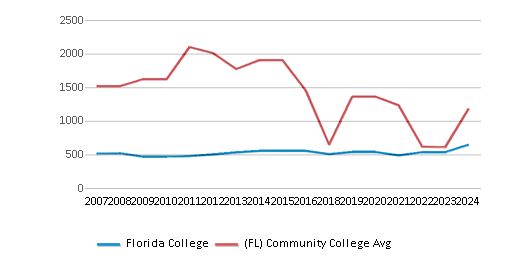
Student : Teacher Ratio
5:1
20:1
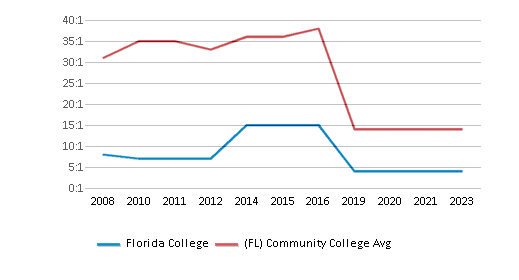
# Full-Time Students
557 students
587 students
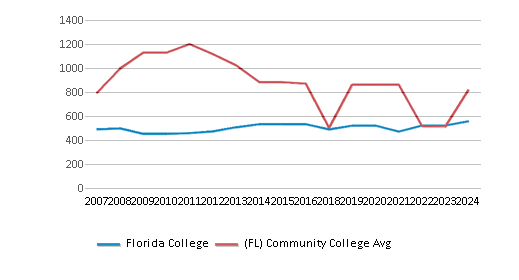
# Part-Time Students
89 students
557 students
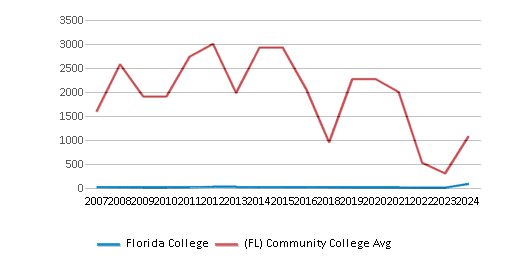
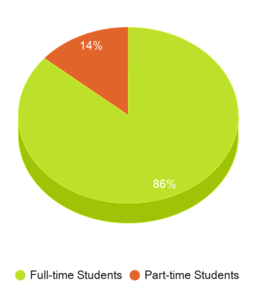
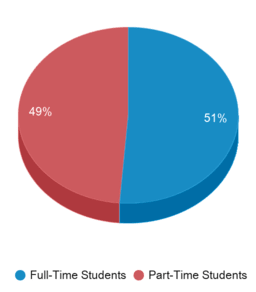
# Enrollment Undergraduate
646 students
261 students
# Full-Time Undergraduate Students
557 students
574 students
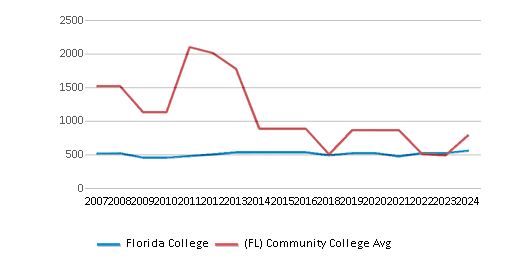
# Full-Time Graduate Students
n/a
85 students
# Part-Time Undergraduate Students
89 students
648 students
# Part-Time Graduate Students
n/a
36 students
Total Dormitory Capacity
608 students
174 students
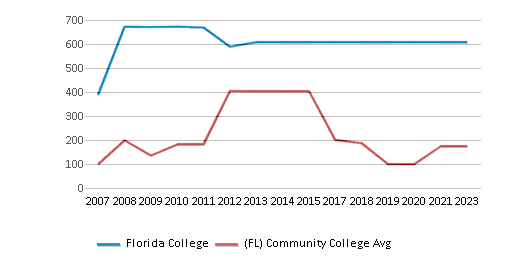
% American Indian/Alaskan
1%
n/a
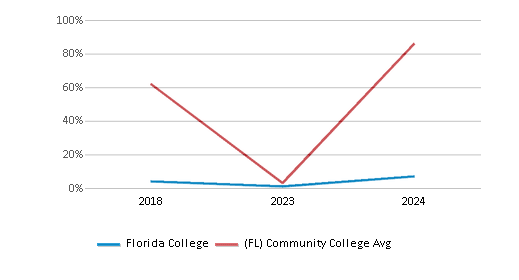
% Asian
2%
5%
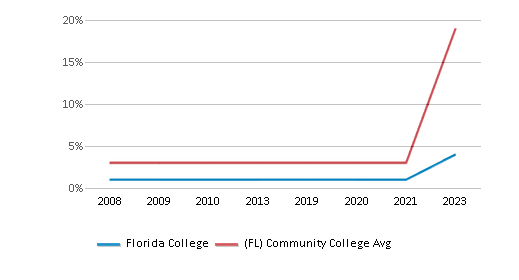
% Hispanic
7%
30%
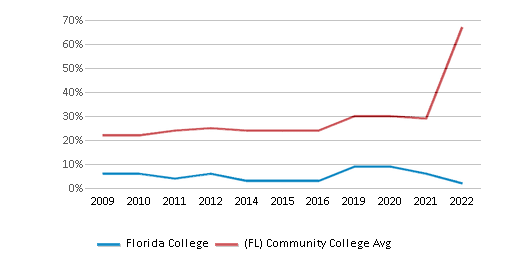
% Black
3%
19%
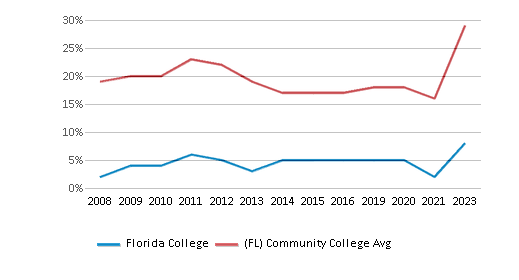
% White
71%
33%
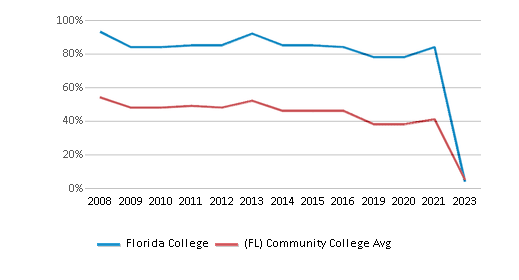
% Hawaiian
1%
2%
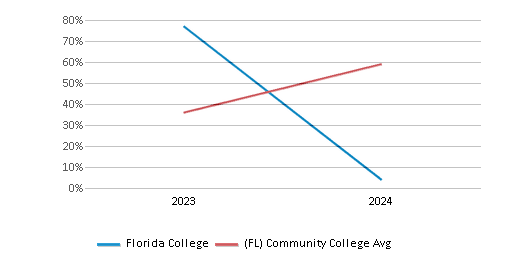
% Two or more races
2%
4%
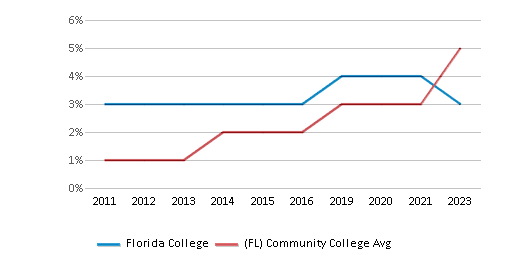
% Non Resident races
3%
2%
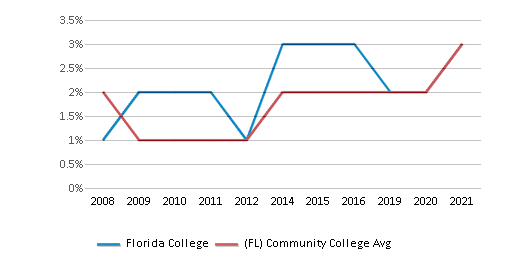
% Unknown races
9%
5%
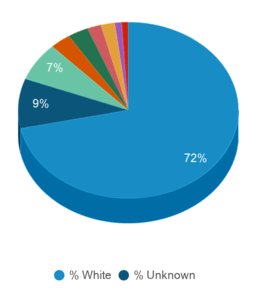
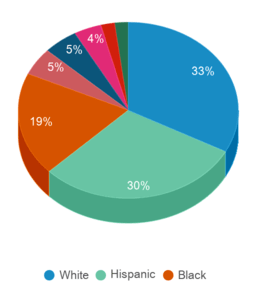
Diversity Score
0.49
0.76
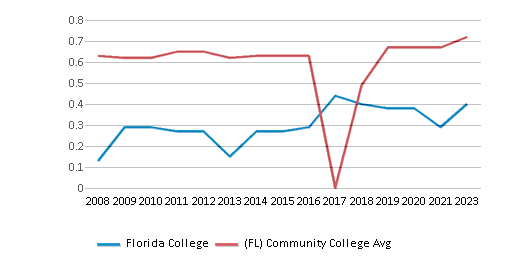
College Completion Rate (Students who graduate in less than 4 years)
n/a
0.6183%
College Completion Rate (Students who graduate in 4 years or more than 4 years)
0.6761%
0.4334%
Average Graduate Earnings (10 Years)
$42,600
$31,500
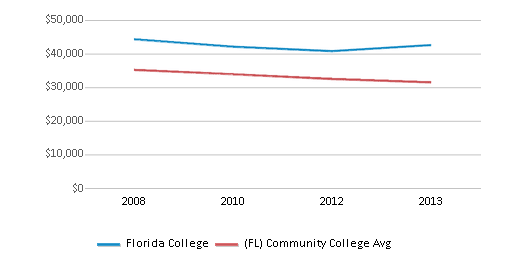
Tuition and Acceptance Rate
The private state tuition of $15,330 is less than the state average of $16,355. The private state tuition has declined by 15% over four years.
Private State Tuition Fees
$15,330
$16,355
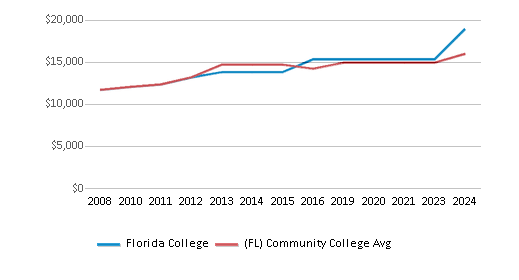
Tuition Notes
per semester, full t
% Students Receiving Some Financial Aid
87%
88%
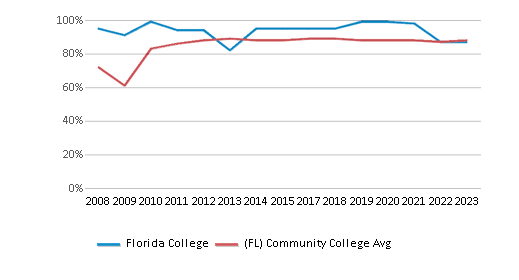
Median Debt for Graduates
$12,000
$9,750
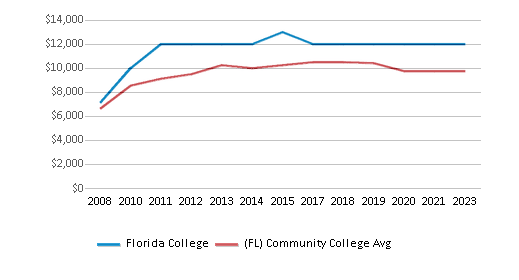
Median Debt for Dropouts
$5,500
$5,500
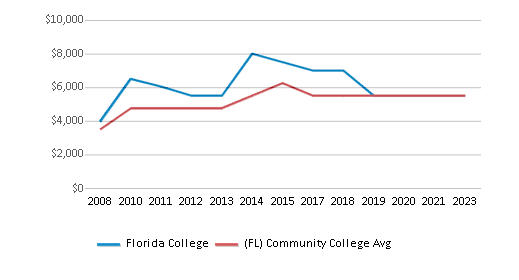
Acceptance Rate
83%
94%
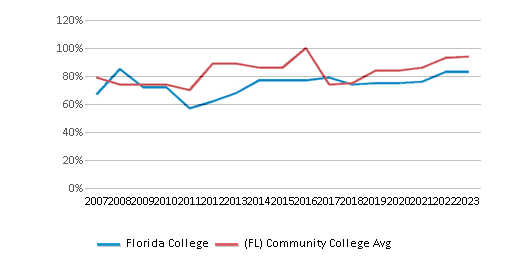
SAT Total Avg.
1,051
871
SAT Reading
533
442
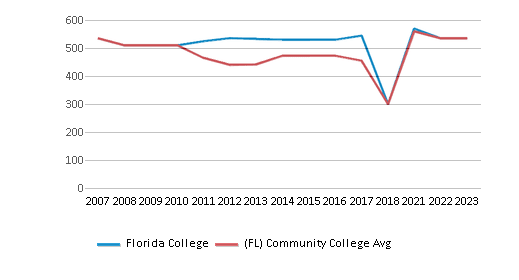
SAT Math
518
429
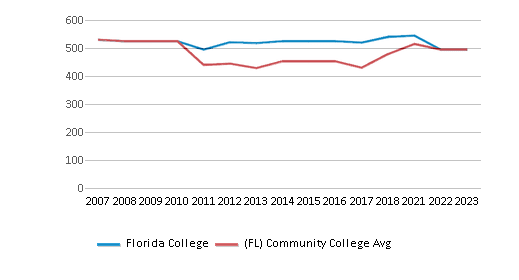
SAT Writing
504
504
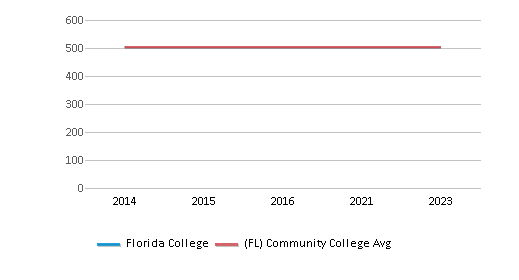
ACT Total Avg.
67
54
ACT Composite
22
18
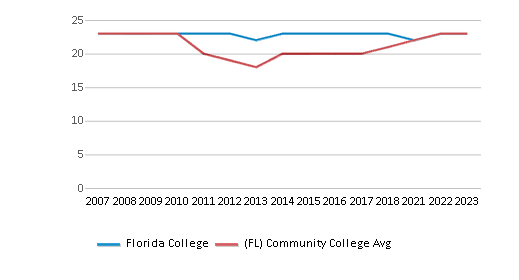
ACT English
24
18
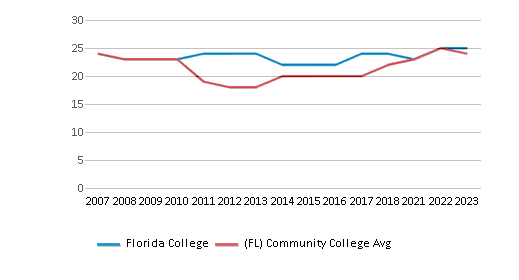
ACT Math
21
18
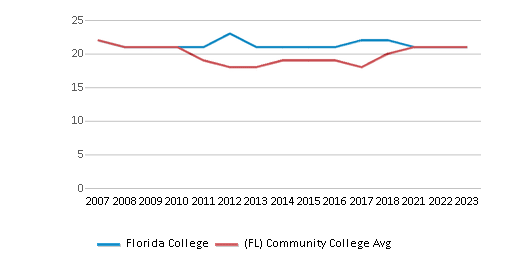
ACT Writing
7
7
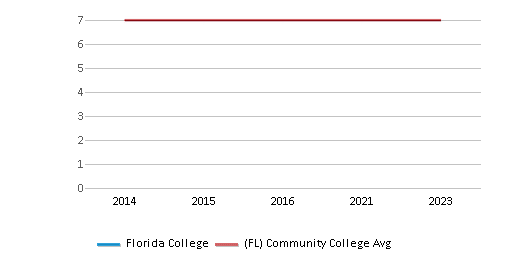
Source: 2024 (or latest year available) Integrated Postsecondary Education Data System (IPEDS)
School Notes
- Florida College was conceived in 1942, its charter drafted in 1944, and its first students enrolled in 1946. From its beginning the College has remained independent of church affiliation and has operated without financial support either from churches or from the government. The campus overlooks the scenic Hillsborough River just northeast of Tampa, Florida, within the suburban community of Temple Terrace. This location provides convenient access to the Tampa International Airport and two major interstate highways (75 and 4), as well as to the cultural advantages of a major metropolis. In 1954 the Southern Association of Colleges and Schools granted Florida College full accreditation for the Associate of Arts degree. In 1996 the Association granted accreditation for the Bachelor of Arts degree in Biblical Studies. More recently, the College has expanded its bachelor's degree programs to include a Bachelor of Science in Elementary Education, a Bachelor of Arts in Music, a Bachelor of Science in Business Administration and an interdisciplinary Bachelor of Arts in Liberal Studies. Florida College offers student athletes ample opportunities to shine. Men may compete on the intercollegiate level in basketball, soccer and cross country and women compete in volleyball, soccer and cross country. If you're not on a team but you still love to play, become a competitor on the intramural fields, where societies vie for victory in flag football, basketball, softball, and volleyball. Either way, Falcon spirit and Florida sun give FC students a refreshing change of pace and a healthy sense of competition.
Frequently Asked Questions
How much does Florida College cost?
Florida College's private state tuition is approximately $15,330.
What is the acceptance rate of Florida College?
The acceptance rate of Florida College is 83%, which is lower than the state average of 94%. Florida College's acceptance rate is ranked among the top community colleges in Florida with low acceptance rates.
What is Florida College's ranking?
Florida College ranks among the top 20% of community college in Florida for: Lowest acceptance rates.
Recent Articles

Obtaining Your Bachelor's Degree at a Community College
Explore the evolving landscape of community colleges offering bachelor's degrees, addressing affordability, accessibility, and workforce needs.

A to Z of Community College Certificates and Courses
From business and healthcare to technology and skilled trades, the article showcases the breadth of options available to students seeking to enhance their knowledge, develop new skills, or pursue career advancement.

What is a Community College?
This comprehensive guide explains what a community college is, its history, and its role in higher education. It covers the types of programs offered, differences from four-year colleges, benefits of attending, and important considerations for prospective students, providing valuable insights for those exploring educational options.









